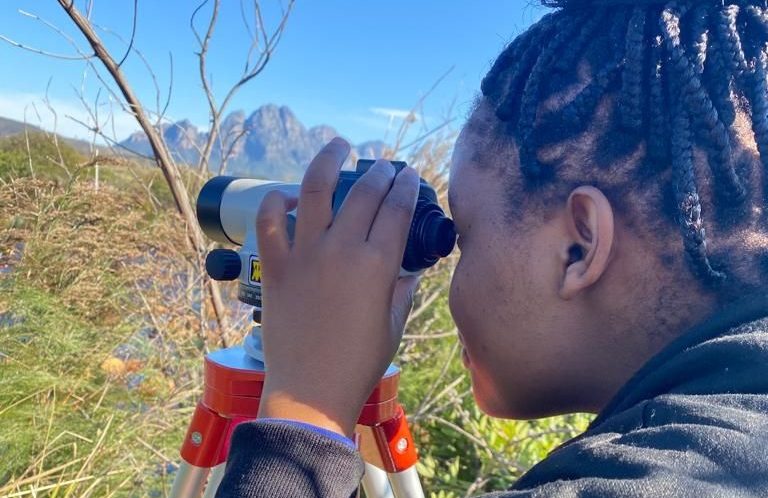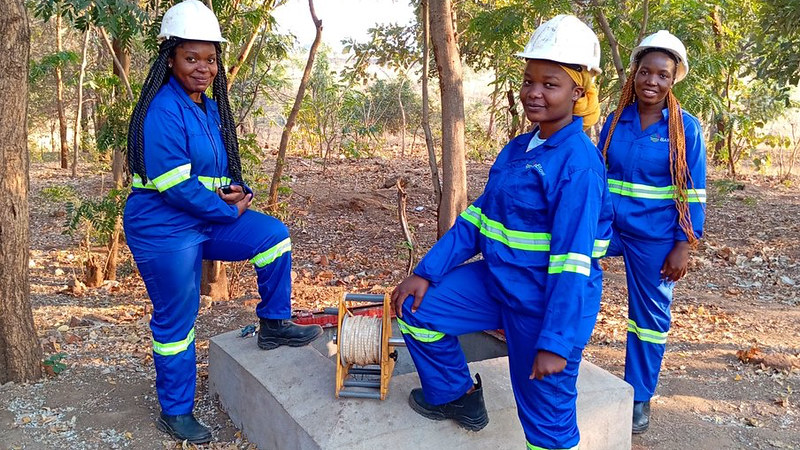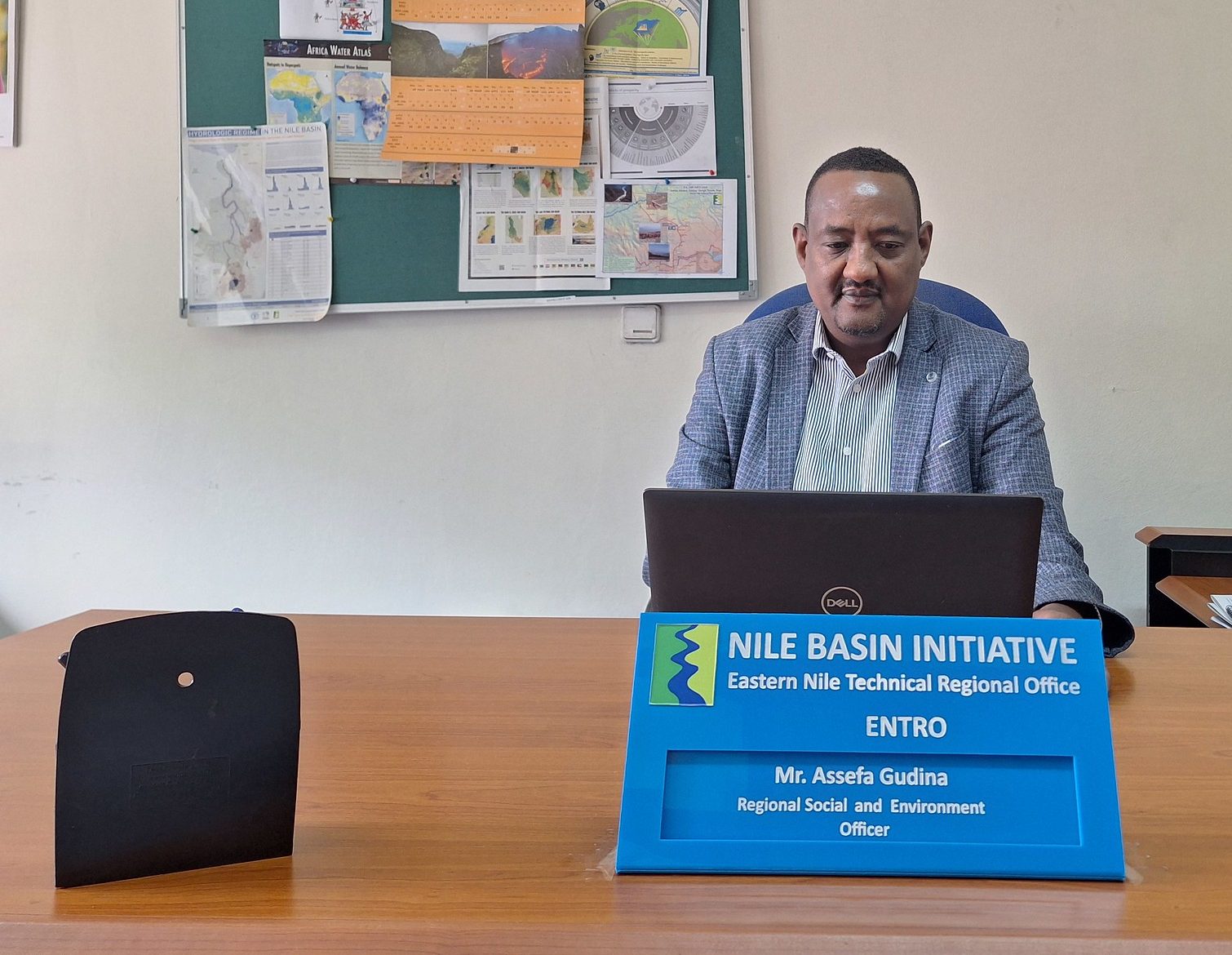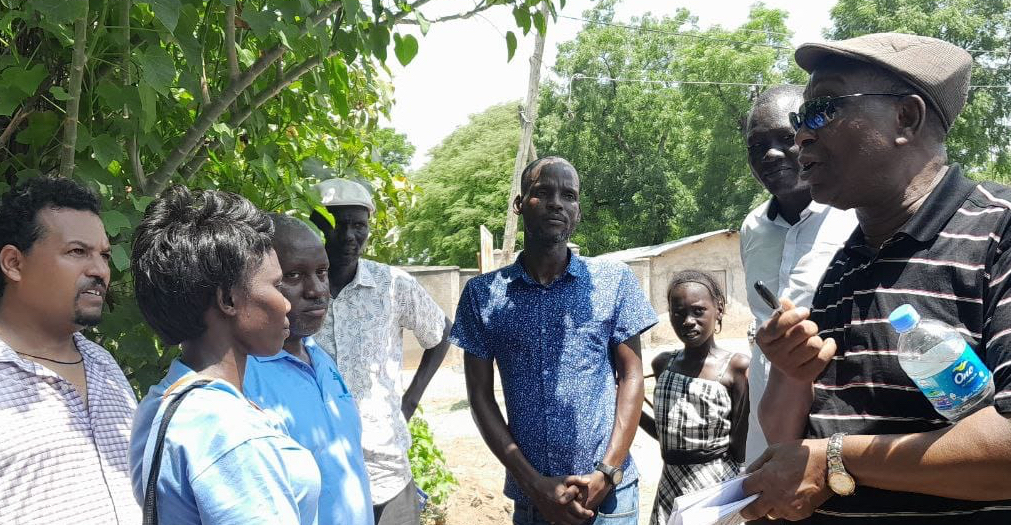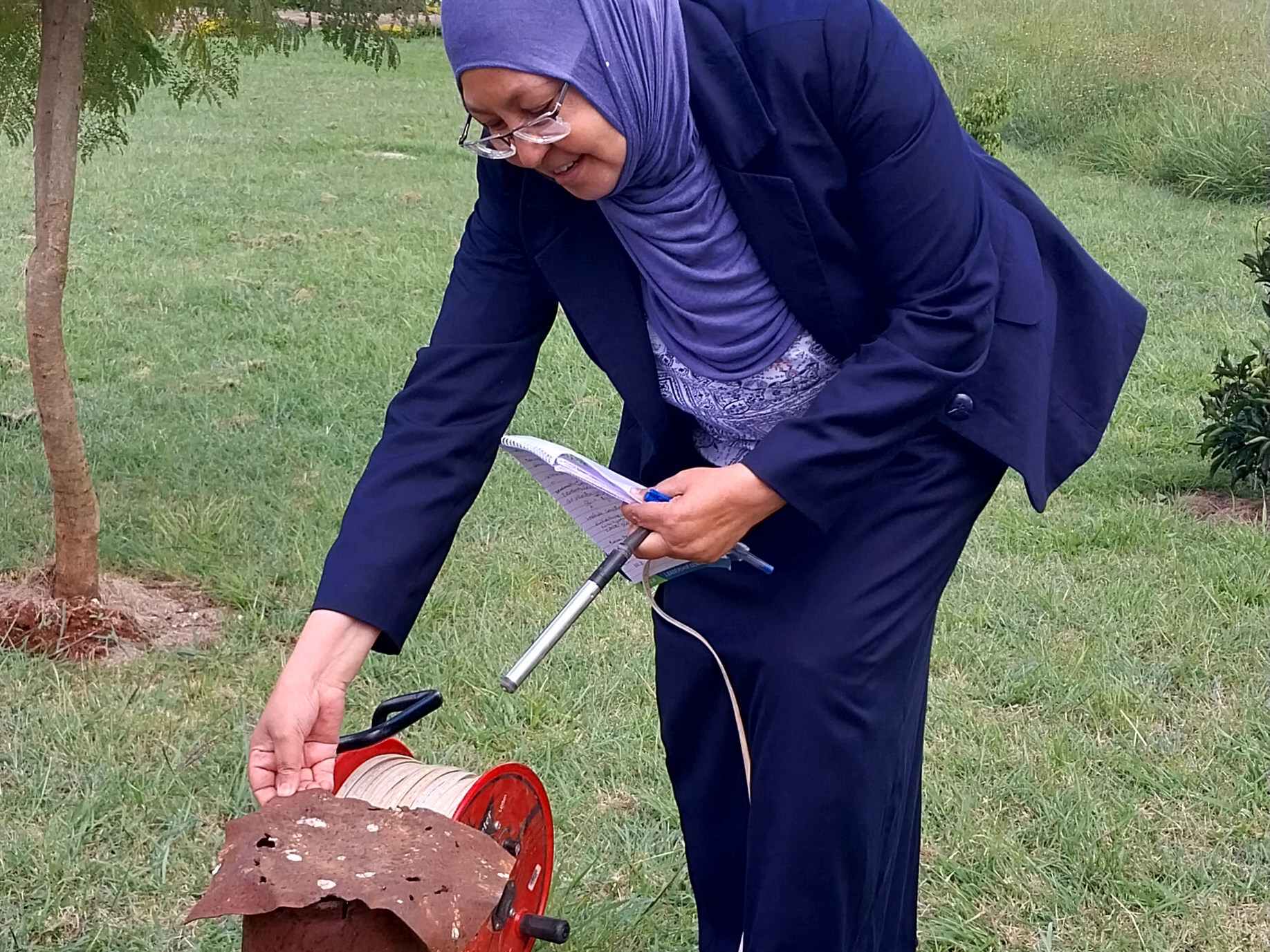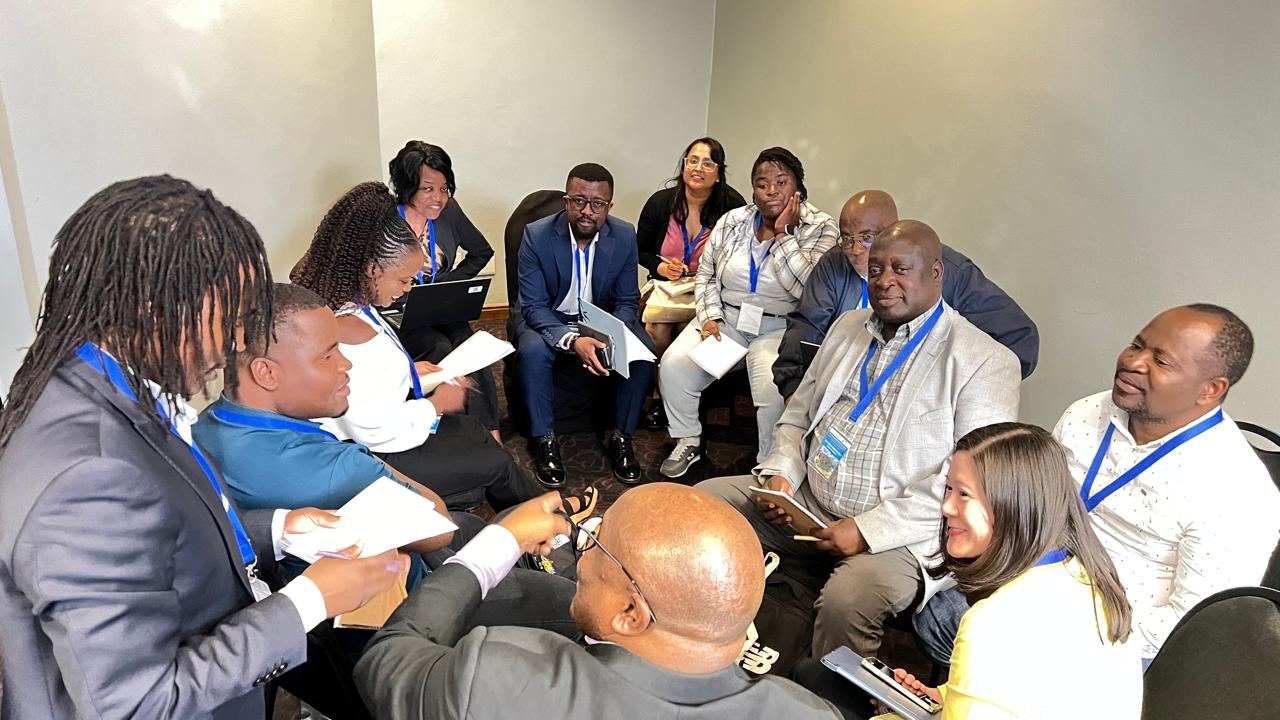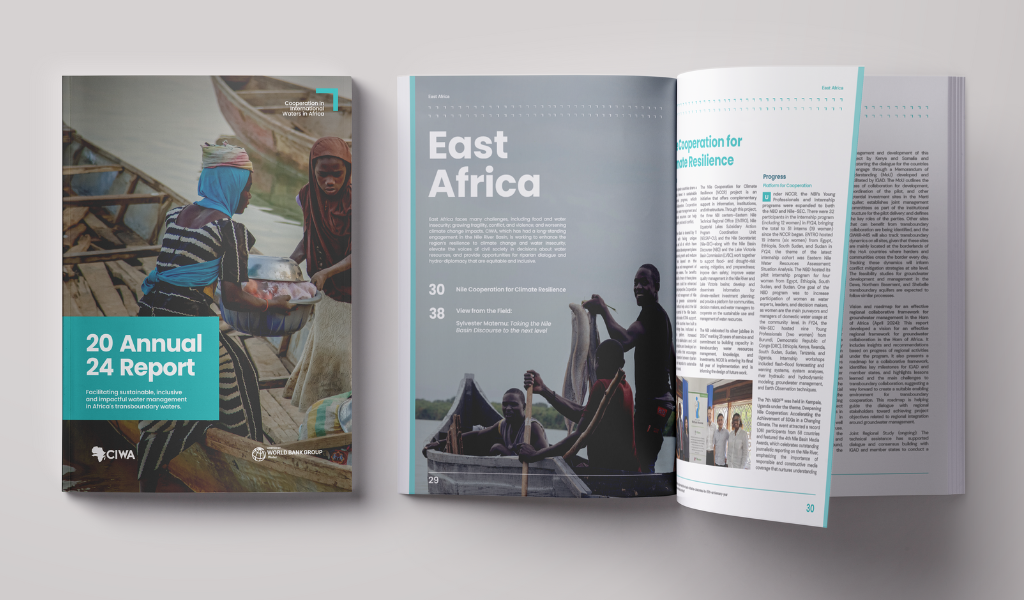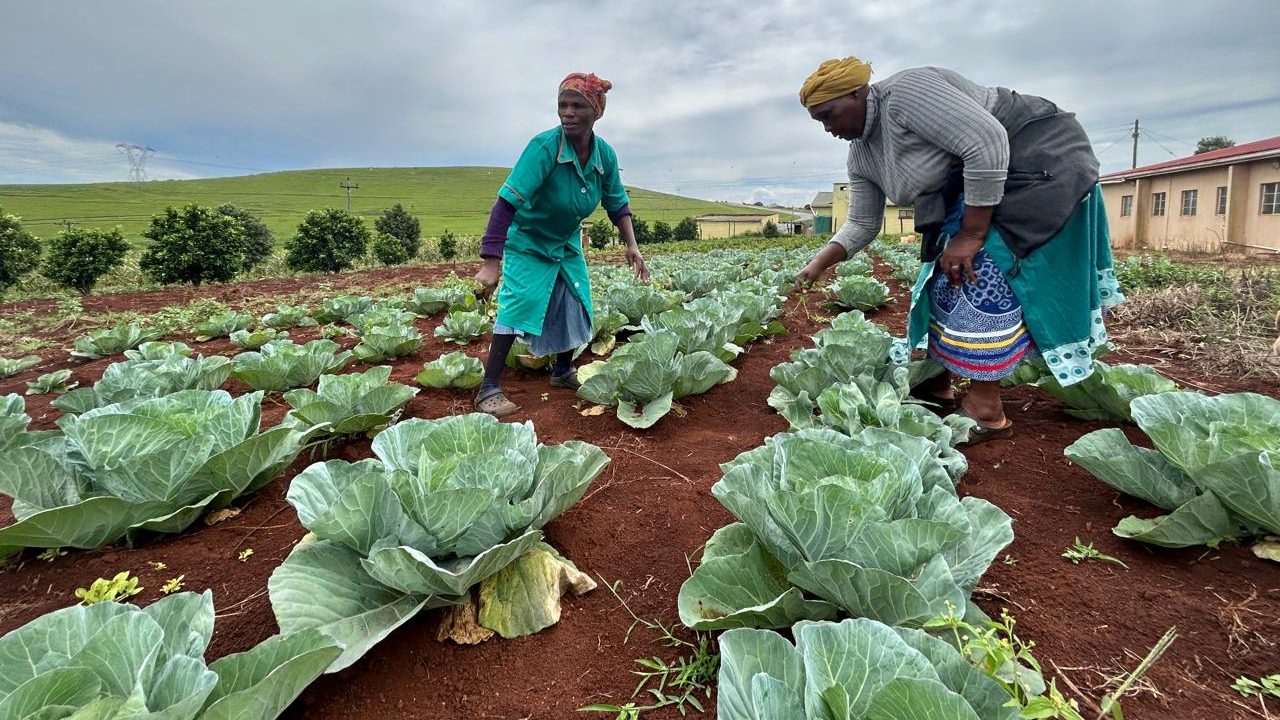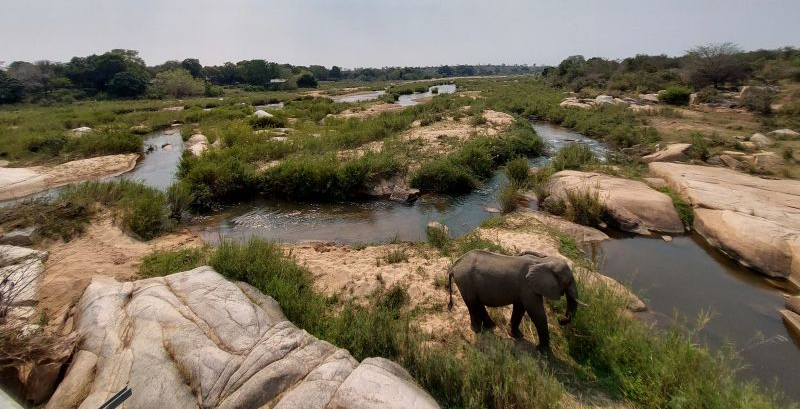Researching the effects of groundwater-dependent invasive species in South Africa
Posted in : A View From The Field on 7 April 2025
In South-Africa, a water-stressed country, some species pose risks to groundwater-dependent ecosystem services and groundwater conservation. Read the story of Mmasechaba Lebogang Moropane whose work is to detect and map the extent of invasive species that rely on groundwater in the Heuningnes Catchment in the Western Cape province.
Making Africa’s Water Workplaces Welcoming for Women
Posted in : Blog on 5 March 2025
As the world prepares to celebrate International Women’s Day on March 8, with a call to collectively #AccelerateAction, the World Bank’s Cooperation in International Waters in Africa (CIWA) is more committed than ever to transforming transboundary water resources organizations into more equitable, diverse, and inclusive workplaces.
A male champion for gender equality
Posted in : Blog on 3 March 2025
In the male-dominated transboundary water sector, men who support gender equality are well-positioned to challenge cultural norms about gender roles and advocate with other men to advance women’s equality and empowerment in water resources institutions. Assefa Gudina explains how he wants to change things.
Taking the Nile Basin Discourse to the next level
Posted in : Latest on 12 February 2025
Without nature, we are nothing,” says Sylvester Matemu, who became head of the Nile Basin Discourse in 2024. “Without nature, we cannot do anything. That perspective underlies Matemu’s passion for protecting water resources and involving communities in gathering data about water and adapting to climate change. CIWA previously supported NBD with projects totaling over US$5 […]
Calming conflict through groundwater resilience
Posted in : Blog on 18 January 2025
Igbal Salah, a hydrologist at IGAD, is doing her part to minimize conflict in the borderlands of the HoA by working with CIWA on its Untapping Resilience: Groundwater Management and Learning in the Horn of Africa’s Borderlands initiative and the related World Bank GW4R program. Read the latest CIWA blog on Horn of Africa.
Empowering Women: CIWA Male Champions Unite in Lesotho
Posted in : Blog on 18 December 2024
The Cooperation for International Waters in Africa (CIWA) is committed to promoting gender equality in transboundary water management. It supports women by addressing institutional and programmatic challenges that hinder their participation. Despite positive outcomes from direct support, CIWA acknowledges that entrenched patriarchal norms still limit women’s influence in decision-making. To address this, CIWA has initiated […]
Going Beyond Water: CIWA Program Unveils 2024 Annual Report
Posted in : Blog on 13 December 2024
This year, the Annual Report 2024 is available in flipbook version. The Cooperation in International Waters in Africa (CIWA) Partnership worked diligently and successfully in the 2023-2024 fiscal year to address mounting challenges including climate change, conflict, and instability across Sub-Saharan Africa. There was a civil war in Sudan. A coup in Niger. Conflicts in […]
Namibia: Bridging the Gender Gap in Groundwater Resources Management
Posted in : Blog on 20 November 2024
In the field of groundwater resources management, a pressing question often emerges: are we truly equipping women with the necessary tools and opportunities to thrive, or are we simply attempting to plug the gender gap without tackling the root causes of gender inequality and discrimination? Despite considerable progress in gender equality across various sectors, including […]
Mfundo Macanda: Developing climate- smart agriculture in the Eastern Cape
Posted in : Blog on 15 May 2024
To develop inclusive and sustainable agriculture, the Eastern Cape Provincial Government turned to the World Bank and SADRI, a CIWA technical assistance that addressed cross- border drought risks, improved cooperation, and created a holistic vision of drought-risk management throughout Southern Africa.
Eddie Riddell: Improving livelihoods in Southern Africa
Posted in : A View From The Field on 16 April 2024
The Pafuri-Sengwe Node of GLTFCA spans regions in three countries— Mozambique, South Africa, and Zimbabwe. The area is rich in bird species and big game such as elephants, and ecotourism is a major source of income. Pafuri-Sengwe encompasses the Limpopo River, whose seasonality limits livelihoods and leads to water and food insecurity for those living […]



